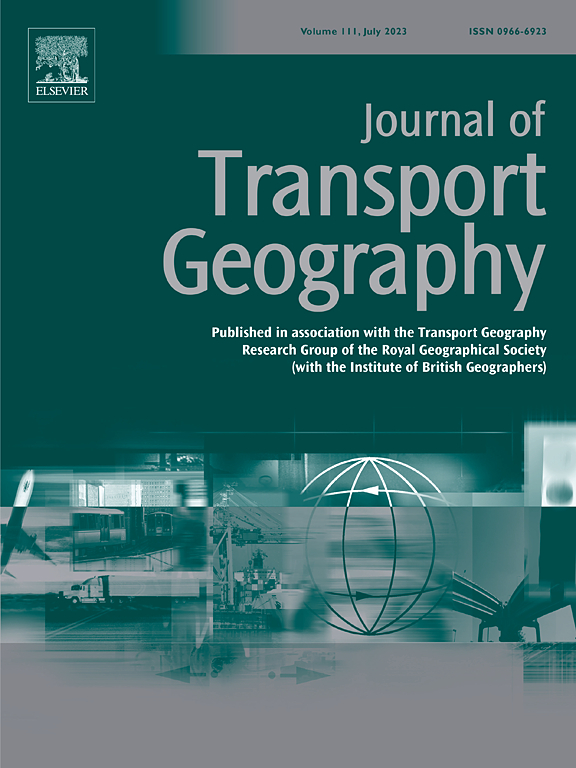“I have no choice”: Agency, poverty and embodied experience in urban transport
IF 5.7
2区 工程技术
Q1 ECONOMICS
引用次数: 0
Abstract
This mixed-methods study explores mobility – and the lack of it - in Lilongwe, Malawi, a mid-sized African capital city, based on a 600-person household travel survey, developed to capture nuances of gender and class, “mobilities of care”, and suppressed and unfulfilled travel needs, as well as over 100 semi-structured interview with city residents, transport operators, and policy makers. As well as the focus on missed travel and unreachable destinations, we integrate the physical, mental and emotional experiences of travel. The paper finds travel in the city to be dominated by sense of constraint and limited agency emerges for urban residents. Travel is expensive, difficult and ineffective. Half of respondents do not use any form of motorized transport regularly, and 60 % of residents report being unable to make trips for social purposes, and over 40 % for medical purposes. Most areas are perceived a unsafe for pedestrians, both from crime, and from poor traffic safety. 24 % of respondents report experiencing a traffic crash in the past six months. For residents, it means both curtailed physical movement, and a deprivation of agency, which saps choice, opportunity, and time. Even basic, daily, routing trips require constant tradeoffs, calculations and sacrifices to navigate the city. These drive a layered sense of exclusion, frustration, and disempowerment.
“我别无选择”:城市交通中的代理、贫困和具体经验
这项混合方法的研究基于一项600人的家庭旅行调查,探讨了非洲中等规模的首都马拉维利隆圭的流动性和缺乏流动性,该调查旨在捕捉性别和阶级、“护理流动性”、被压抑和未满足的旅行需求的细微差别,并对城市居民、交通运营商和政策制定者进行了100多次半结构化访谈。除了关注错过的旅行和无法到达的目的地外,我们还整合了旅行的身体,心理和情感体验。研究发现,城市居民的出行受到约束意识的支配,出现了有限代理现象。旅行是昂贵的,困难的和无效的。一半的答复者不经常使用任何形式的机动交通工具,60%的居民报告不能出于社交目的出行,40%以上的居民不能出于医疗目的出行。大多数地区被认为对行人不安全,既有犯罪,也有糟糕的交通安全。24%的受访者表示在过去6个月里经历过交通事故。对于居民来说,这意味着身体活动的减少,以及能动性的剥夺,这会削弱选择、机会和时间。即使是基本的、日常的路线旅行也需要不断的权衡、计算和牺牲才能在城市中穿行。这些导致了一种分层的排斥感、挫败感和被剥夺权力感。
本文章由计算机程序翻译,如有差异,请以英文原文为准。
求助全文
约1分钟内获得全文
求助全文
来源期刊

Journal of Transport Geography
Multiple-
CiteScore
11.50
自引率
11.50%
发文量
197
期刊介绍:
A major resurgence has occurred in transport geography in the wake of political and policy changes, huge transport infrastructure projects and responses to urban traffic congestion. The Journal of Transport Geography provides a central focus for developments in this rapidly expanding sub-discipline.
 求助内容:
求助内容: 应助结果提醒方式:
应助结果提醒方式:


